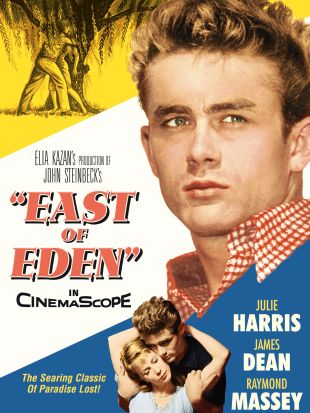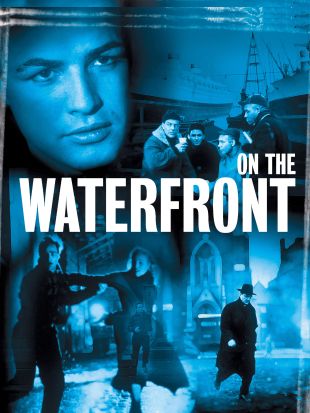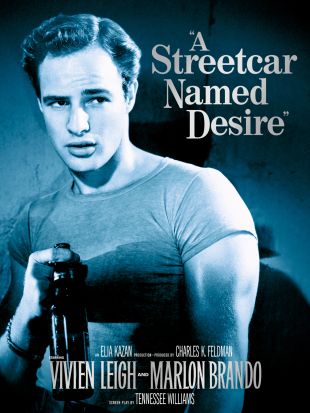One of the most revered directors of his era, Elia Kazan was also one of the most -- arguably the most -- controversial. In addition to making his mark on film history with masterpieces such as A Streetcar Named Desire, On the Waterfront, and East of Eden, Kazan made a more dubious mark with his involvement in the House Committee on UnAmerican Activities (HUAC)'s anti-Communist witchhunt of the 1950s; his decision to name alleged industry Communists earned him the ire of many of his peers, resulting in what was essentially his own Hollywood blacklisting. Thus, any biography of Kazan cannot be written without mention of his political involvement, in tandem with the many cinematic contributions he made throughout a long and illustrious career. An Anatolian Greek, Kazan was born Elia Kazanjoglou in Istanbul (then Constantinople), Turkey, on September 7, 1909. In 1913, he emigrated with his parents to New York City, where his father sold rugs for a living. After an undergraduate education at Williams College and drama study at Yale, Kazan joined New York's left-leaning Group Theatre as an actor and assistant manager. During the 1930s, when Kazan was an active member, the theater was under the leadership of Harold Clurman, Cheryl Crawford, and Lee Strasberg. A focal point of New York artistic life during the decade, the Group Theatre also was a center for radical thought and activity; Kazan himself was a member of the Communist party from 1934 until 1936, when he quit the party in what he claimed was "disgust." He did continue to maintain close relations with many in and around the Stalinist movement, only terminating these relations in 1952 when he testified before HUAC. In addition to acting in such plays as Clifford Odets' Waiting for Lefty and Golden Boy, Kazan began directing in 1935. He went on to become one of the leading figures on Broadway during the next decade, directing debut productions of Thornton Wilder's Skin of Our Teeth, Tennessee Williams' A Streetcar Named Desire, Arthur Miller's Death of a Salesman, and Williams' Cat on a Hot Tin Roof. Hollywood took notice of the director's talent and in 1945 Kazan had a memorable directing debut with A Tree Grows in Brooklyn. Two years later, he found further success with Gentleman's Agreement, Sea of Grass, and Boomerang!. Although the latter two were considerable accomplishments, it was Gentleman's Agreement -- a bold exploration of anti-Semitism starring Gregory Peck and John Garfield -- that won Kazan his greatest accolades: the film was nominated for eight Academy Awards, winning Best Picture, Best Supporting Actress for Celeste Holm, and Best Director for Kazan. The same year, he co-founded the famed Actor's Studio with Strasberg; the school would serve as a training ground for legions of famous actors, including Marlon Brando. In 1949, the director found acclaim with the interracial love story Pinky, which received three Oscar nominations. Following 1950's Panic in the Streets, a tale of efforts to contain a New Orleans plague epidemic that mirrored the Communist scare taking hold in the U.S., Kazan scored his next major success with a film adaptation of A Streetcar Named Desire. Featuring a sensuous, explosive Marlon Brando in the role of Stanley Kowalski, the film garnered 12 Oscar nominations (eventually winning four, including Best Actress for Vivien Leigh), and made a star of Brando. The following year, Kazan and Brando collaborated again on Viva Zapata!, a biopic of Mexican revolutionary leader and President Emiliano Zapata. It was at this time that Kazan's offscreen life became irretrievably enmeshed with his cinematic work. In January 1952, the director was called before HUAC regarding his involvement with the Communist Party and the Group Theatre. During his hearing, he denied that the group was a "front" for Communist activity and that its three directors were Communists. He also refused to supply HUAC with the names of other Communists in the Group Theatre. However, it was not long before Kazan changed his testimony: in the spring of the same year, after being told by 20th Century Fox President Spyros P. Skouras that he would never work in Hollywood again if he refused to disclose names, Kazan once again testified before the committee. In his hearing, he supplied HUAC with several names, including those of writer Clifford Odets (who himself would later "name names"), Lillian Hellman, John Garfield, and Paula and Lee Strasberg. After his testimony, Kazan was scorned by many of his peers. Arthur Miller, who had once been a close friend, spoke out against him in a letter to the New York Post. However, the attitude greeting the clash between Kazan's dubious offscreen activities and his inarguable onscreen talents was summed up by Brando, who was quoted as saying: "that was a terrible thing [Kazan] did in Washington. I'm not going to work with him anymore. But he's good for me. Maybe I'll work with him a couple more times, at least once." He did so, collaborating with the director on the 1954 classic On the Waterfront. The film -- which was considered by many viewers to be Kazan and screenwriter Budd Schulberg's elaborate defense of an informer's rationale -- won almost universal acclaim, netting 12 Academy Award nominations and winning Best Picture, Best Actor for Brando, Best Supporting Actress for Eva Marie Saint, and another Best Director award for Kazan. Kazan's next effort, East of Eden, was also greeted with enthusiasm, netting him another Oscar nomination for Best Director. Aside from the critical acclaim it garnered, the film was notable for being James Dean's first starring vehicle; in directing the actor, Kazan helped him produce the type of nuanced tough-sensitive performance that he famously elicited from other actors such as Brando, John Garfield, and Montgomery Clift. Such performances became known as hallmarks of Kazan's films. In 1956, the director made Baby Doll, another Williams adaptation, which was memorable not so much for its quality (or lack thereof) as for the controversy its content inspired. Chock-full of steamy sexual suggestion and lots of thumb-sucking, the film was the first major motion picture ever to be publicly condemned by the Legion of Decency, the Catholic organization responsible for instituting the repressive Production Code. Somewhat less controversy surrounded Kazan's Wild River, a 1960 film starring Montgomery Clift, and the director found further success with his 1961 Splendor in the Grass. Starring Natalie Wood and Warren Beatty as ill-fated lovers, the film provided an interesting exploration of lust and insanity, and Wood was rewarded with a Best Actress Oscar nomination for her role as the girl who literally goes crazy over Beatty (screenwriter William Inge won a Best Original Screenplay Oscar for his work on the film). Kazan next made America, America, a 1963 film based on the early life of his Greek uncle, and thereafter became largely absent from the film industry, occasionally making acting appearances. In 1998, the 89-year-old director once again found himself at the center of controversy, this time due to the decision of the Academy of Motion Picture Arts and Sciences to present him with a Lifetime Achievement Award. A deep divide appeared in Hollywood, between those who supported the decision, maintaining that the director's body of work made him worthy, and those who didn't, maintaining that Kazan's offscreen activities amounted to a betrayal of his peers, thus making him an unfit award recipient. The Academy went ahead and presented the award regardless, honoring a director who, political actions aside, had made an indelible contribution to his chosen field.

Elia Kazan
Share on
Biography by AllMovie
Movie Highlights
Factsheet
- Immigrated to the United States with his family at age 4. Joined the Group Theatre in New York in 1932; other members included Clifford Odets and Lee J. Cobb. Cofounder of the Actors Studio in 1947. Responsible for the breakout debuts of movie icons Marlon Brando (A Streetcar Named Desire), James Dean (East of Eden) and Warren Beatty (Splendor in the Grass), among others. In 1952, admitted to the House Committee on Un-American Activities (HUAC) involvement in the Communist party and disclosed names of other Group Theatre members who were secretly active. Though many in Hollywood were angered by his testimony, he was not blacklisted as others were and continued to direct films and plays. Appointed codirector of the Repertory Theater of Lincoln Center in 1961. The National Film Registry selection America, America is an adaptation of his book about the immigration of his uncle to the U.S. Because he had named names to the HUAC, his receipt of an honorary Oscar in 1999 was controversial and, despite his impressive body of work, was not universally supported.


